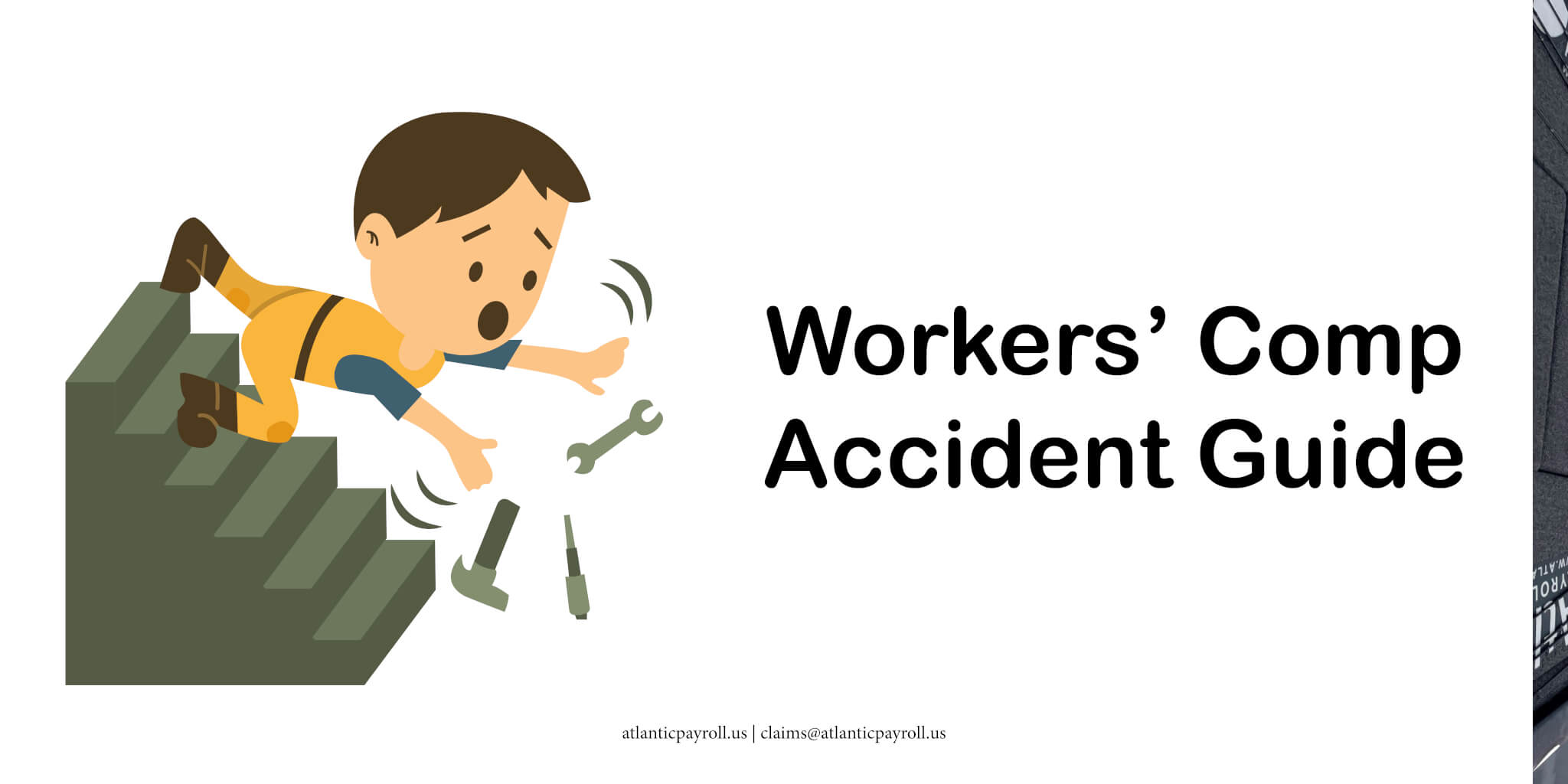What PEO, Co Employment Means for Small Businesses
We at Atlantic Payroll Partners have been providing PEO solutions to businesses in Florida and beyond for more than 10 years. We know that PEOs are sometimes referred to as, employee leasing or co-employment. Below is a breakdown of “co-employment”.
Co-employment refers to a legally binding agreement between a Professional Employer Organization (PEO) and an employer. According to the National Association of Professional Employer Organizations (NAPEO), “[The PEO relationship] involves a contractual allocation and sharing of certain employer responsibilities between the PEO and the client.” Basically, the PEO handles their clients’ HR and employment obligations.
PEOs Work Mostly With Small Businesses
According to NAPEO, the average PEO client has 19 worksite employees. For many PEOs, the clientele sweet spot is a small business with 10-150 employees.
However, as NAPEO points out, larger businesses (including those with 500 or more employees) are increasingly turning to PEOs. In these cases, the client typically has their own HR team. The PEO simply works in conjunction with the client’s HR team to optimize the client’s human resource function.
What PEOs Do for Small Businesses
PEOs help small businesses manage their HR and employment responsibilities while allowing the client to retain control over their business and its operations.
Many PEOs offer full-scale HR solutions to small businesses, including:
- Onboarding and new-hire processing.
- Worker classification.
- Access to employee benefits.
- Time and labor management.
- Payroll management.
- Performance management.
- Leadership development.
- Employee engagement tools.
- Compensation and HR planning.
- Manager and employee self-service technology.
- Workers’ compensation.
- Unemployment insurance management.
- Employee relations.
- HR, benefits and payroll compliance.
- Employment cost control.
Top PEO Value Drivers for Small Businesses
Access to competitive benefits
Small businesses often struggle to secure affordable, competitive benefits on their own, which can put them at a disadvantage when it comes to talent attraction and retention.
PEOs deliver cost-effective benefits to client employees that rival those offered by Fortune 500 companies. They provide medical, dental, vision and life insurance; retirement savings plan; educational benefits; adoption assistance; flexible spending accounts; and ancillary benefits such as critical illness insurance and pet insurance.
Per NAPEO, businesses that use a PEO and have fewer than 10 employees receive more than three times greater participation in their retirement plans than do businesses that do not use a PEO.
Payroll administration
Small businesses tend to outsource payroll, if nothing else, because it is time-consuming and compliance-driven.
PEOs usually assume responsibility for their client’s payroll, using their own Employer Identification Number instead of the client’s. This means the PEO is responsible for paying client employees accurately and on time and for handling other critical payroll duties, such as wage garnishment and payroll tax administration.
Workers’ compensation cost management
PEOs help their clients implement strong safety protocols to reduce workers’ compensation costs.
Administrative cost savings
According to NAPEO, “Administrative costs are around $450 lower per employee for businesses that use a PEO.”
Single vendor
By serving as a one-stop shop, PEOs save small businesses from having to find and maintain different vendors for their HR, benefits and payroll needs.
In the end, the specifics of a PEO relationship will vary based on the employer’s needs and the PEO’s offerings.
Interested
If you’re interested in reaping the benefits of working with a PEO, you can get a quote from us here or give us a call at 772-466-0440.
Why Atlantic Payroll Partners
The biggest payroll companies probably won’t have time for your business. It’s that simple, you’ll be a number. At Atlantic Payroll Partners, you’ll be the opposite. We’ll know more than your name; we’ll know the names of your children and their birthday’s as well. We will know you.
We’ve been helping Florida business by managing their payroll and providing workers' compensation quotes for ten years. We help keep payroll cost affordable by provided transparent PEO payroll quotes that allow you to plan your budget accordingly. Like the big payroll companies, you can manage your payroll and payroll timekeeping with us, while reaping the benefits of PEO risk management.
Thinking about payroll outsourcing can be scary. Make sure you know what to expect from payroll outsourcing providers; to make the best decision for your business. In addition to offering payroll, and workers' comp quote we offer: Human Resource consultations, Accounting services, and benefits such as, 401ks and Healthcare plans.
The job market is competitive and your business needs to standout. 401K’s are a great retention and recruiting tool. If you don’t currently offer a 401k plan you and you want to there are some things you should know; specifically, about the 401k Nondiscrimination Rule.
At Atlantic Payroll Partners we do more than offer payroll services. We offer 401k plans. Below we discuss the 401k Nondiscrimination Rule.
A 401(k) is a special kind of plan, and it comes with special rules. Among those are nondiscrimination rules, which are designed to make sure your retirement plan benefits all your employees.
To give everyone an opportunity to save for the future, a 401(k) plan can’t favor highly compensated employees or key employers, such as owners. Nondiscrimination tests make sure everything is fair by looking at how much of their income is deferred by employees, how much the company contributes to employee accounts, and what percentage of assets in the plan belong to the highly compensated employees and key employees.
According to the IRS 401(k) overview, the government wants to make sure that deferred wages and employer matching contributions do not overly benefit these two groups:
- Those who own more than 5% of the company, either directly or by family attribution, at any time.
- Those who received more than $125,000 in compensation. You can limit this to the top 20% of employees, ranked by compensation, in your governing plan document.
The government imposes two tests. Let’s start by seeing what each discrimination test measures, how to apply them and what it means if your plan fails.
- The Actual Deferral Percentage test: The IRS says that this test compares the average salary deferrals of highly compensated employees with that of non-highly compensated employees. Each employee’s deferral percentage is the percentage of compensation that’s been deferred to the 401(k) plan. The ADP is calculated by dividing the amount an employee defers by the total W-2 income. The test measures how much income each group contributes to their respective 401(k) plans.
- The Actual Contribution Percentage test: Itꞌs similar to the ADP test, but it compares the average employer contributions received by the two groups — highly compensated versus non-highly compensated — rather than how much they defer. The ACP is calculated by dividing the company’s contribution to an employee by the W-2 income.
Both tests look at the most recent full plan year. If your plan fails either one of the above tests by failing to meet certain ratios, you must take steps to fix it. There are major consequences if you don’t take corrective action. So here are a few fixes recommended by the IRS, any one of which can solve the problem:
- Refund highly compensated employees’ contributions to bring the average contribution rates down to the passing level.
- Make qualified nonelective employer contributions to all non-highly compensated employees to pass the test.
- A combination of the above two corrective actions.
Ultimately, the results of discrimination testing depend on which employees participate by deferring income to their 401(k) accounts, how much they defer and how much a company contributes. It’s a good idea to understand the basics and deadlines because the consequences for late testing or correction can be severe — including IRS penalties, missed tax deductions and even plan disqualification.
Correcting a failure can have unwelcome tax consequences for employees and require you to make contributions you haven’t budgeted for. To address any risk early, it’s advisable to conduct plan testing throughout the year.
Another alternative
Is to offer special kinds of 401(k) plans: safe harbor or SIMPLE. They are not appropriate for all companies, but if they’re right for you, a big advantage is that they don’t require nondiscrimination testing.
This is just a summary of a complex legal and financial issue. In fact, there are many other rules 401(k) plans have to follow. Your best bet is to work with qualified professionals, and keep on top of 401(k) status: A little planning can go a long way to keeping your 401(k) compliant. If you are interested in learning more about getting a 401k we’re more than happy to help. Feel free to call us at 772-466-0440 or send us a message.
Copyright 2021
Why Atlantic Payroll Partners
The biggest payroll companies probably won’t have time for your business. It’s that simple, you’ll be a number. At Atlantic Payroll Partners, you’ll be the opposite. We’ll know more than your name; we’ll know the names of your children and their birthday’s as well. We will know you.
We’ve been helping Florida business by managing their payroll and providing workers' compensation quotes for ten years. We help keep payroll cost affordable by provided transparent PEO payroll quotes that allow you to plan your budget accordingly. Like the big payroll companies, you can manage your payroll and payroll timekeeping with us, while reaping the benefits of PEO risk management.
Thinking about payroll outsourcing can be scary. Make sure you know what to expect from payroll outsourcing providers; to make the best decision for your business. In addition to offering payroll, and workers' comp quote we offer: Human Resource consultations, Accounting services, and benefits such as, 401ks and Healthcare plans.
Failure to return company property: What are the Payroll Rules?
We’ve received calls about this before, an employee is no longer with “the company” but they still have property that belongs to the company. The best way to ensure that you receive your property back is to withhold an employee’s paycheck, right? Not right at all, that’s against the law. Let’s dig into the rules and what you can do when it comes to get your company property back.
At Atlantic Payroll Partners we do more than offer payroll services. We provide HR consultations. Below is an example of an issue faced by our clients and many others.
It’s not uncommon for employers to entrust company property to employees, such as:
- Office keys.
- Building entrance badges.
- Uniforms.
- Computers/laptops.
- Cellphones.
- Vehicles.
- Job-specific tools or equipment.
If the employee terminates and does not return the property, you may be tempted to hold back their final pay until they do return the item.
However, withholding the employee’s final paycheck is against the law.
The Fair Labor Standards Act (FLSA) requires employers to pay all wages due for the pay period by the employee’s next regularly scheduled payday. This means that when an employee terminates, you must deliver their final wages by their next payday — regardless of whether they return company property. In other words, if the employee fails to return the item, you cannot hold their final paycheck hostage.
Most states also have final paycheck laws that mandate the deadline for giving terminated employees their final wages.
If the employee is nonexempt, you may be able to dock their wages.
Under the FLSA, you can make deductions for unreturned company property if the employee is nonexempt and the deduction does not drop the employee’s pay to below the minimum wage or reduce overtime wages owed to the employee.
Be sure to check state law, because many states restrict the types of deductions that can be made from final wages. For example, some states let employers deduct wages for unreturned property only if the employee consents in writing. A state may also require employers to give employees advance notice of the deduction. For instance, employers in North Carolina must provide at least seven days’ notice.
Some states do not allow the deduction at all. For example, employers in Delaware cannot make deductions for failure to return company property.
If the employee is exempt, you cannot make the deduction.
In opinion letter FLSA 2006-7, the U.S. Department of Labor says that employers cannot dock an exempt employee’s salary to recover the cost of unreturned company property even if the employee authorizes the deduction.
The DOL’s reasoning.
Per the FLSA’s salary basis rule, exempt employees must receive their full, guaranteed salary each payday, unless there’s a permissible deduction. Deducting for the loss, damage or destruction of company property is not permissible because it violates the salary basis rule.
Employers can choose to take legal action.
Not being able to recoup the cost of unreturned property via payroll deduction does not mean all is lost, as employers have the option of filing a lawsuit against an employee. Whether it’s worth taking legal action depends on several factors, including the value of the property and the severity of the situation.
A best practice is to develop strong policies and procedures regarding the receipt, use, care and return of company property. Incorporate the information into your employee handbook, which should be distributed to all employees.
Copyright 2021
Why Atlantic Payroll Partners
The biggest payroll companies probably won’t have time for your business. It’s that simple, you’ll be a number. At Atlantic Payroll Partners, you’ll be the opposite. We’ll know more than your name; we’ll know the names of your children and their birthday’s as well. We will know you.
We’ve been helping Florida business by managing their payroll and providing workers' compensation quotes for ten years. We help keep payroll cost affordable by provided transparent PEO payroll quotes that allow you to plan your budget accordingly. Like the big payroll companies, you can manage your payroll and payroll timekeeping with us, while reaping the benefits of PEO risk management.
Thinking about payroll outsourcing can be scary. Make sure you know what to expect from payroll outsourcing providers; to make the best decision for your business. In addition to offering payroll, and workers' comp quote we offer: Human Resource consultations, Accounting services, and benefits such as, 401ks and Healthcare plans.





